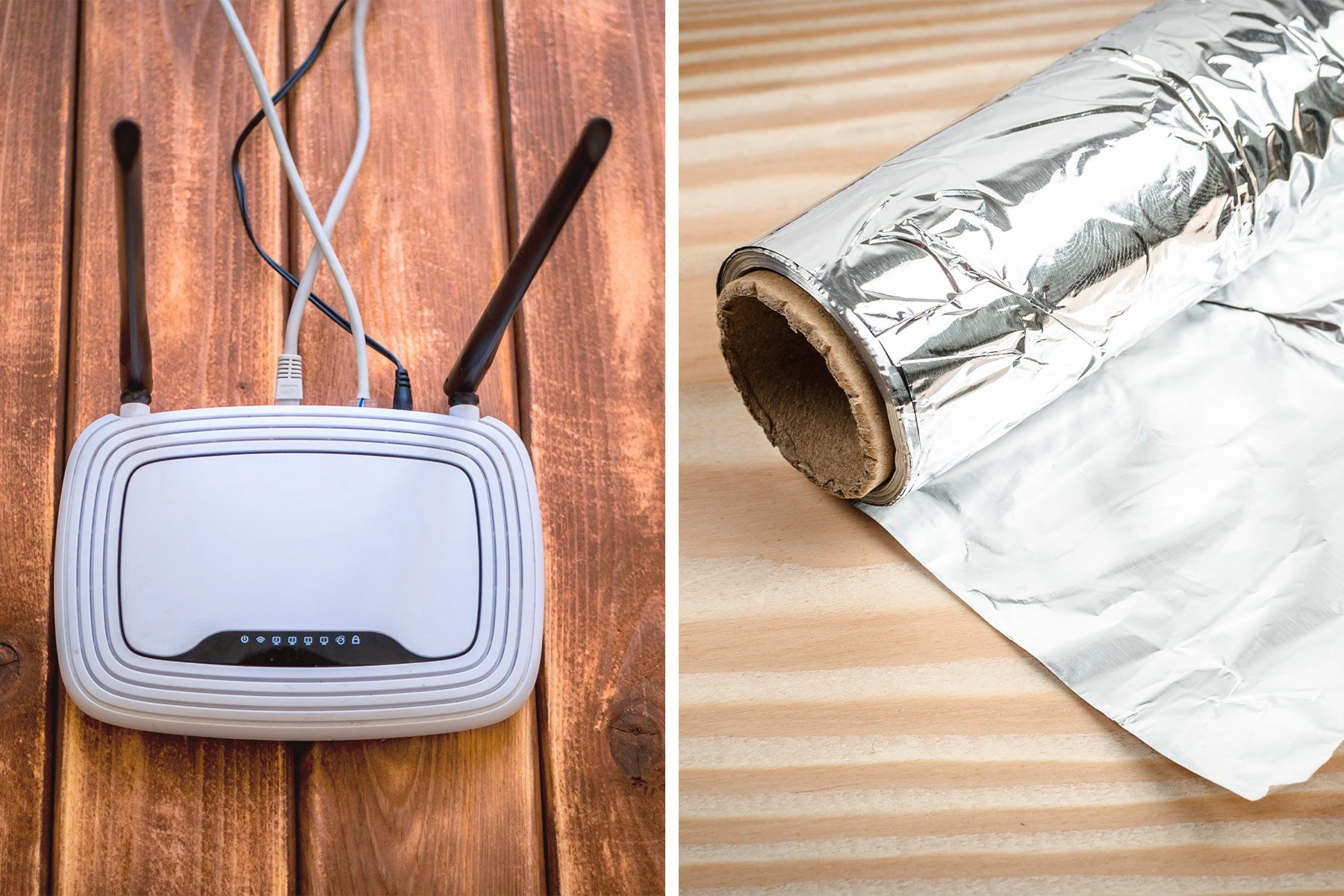How Aluminum Foil Can Boost Your Wi-Fi Signal
This surprising hack could be the remedy when your Wi-Fi throws a buffering tantrum—but is it the real deal or just another tech myth?
Imagine that it’s a cozy Friday night at home, and you’re all settled in to binge-watch your favorite show. You’ve got your snacks lined up, your comfiest blanket at the ready and the perfect spot on the couch. There’s just one problem: Your Wi-Fi signal is dragging.
In this age of instant streaming and virtual meetings, all of us are sadly way too familiar with that dreaded spinning wheel. But what if I told you there’s a science-approved tech tip that promises to put an end to your Wi-Fi woes, and the solution is a household staple that’s probably sitting in your kitchen right now?
Yes, you read that right. Turns out, boosting your Wi-Fi signal is one of many fascinating aluminum foil uses you never knew about. To get the inside scoop, I asked an expert to explain how this trick works and even grabbed my lab coat (aka my pajamas) to test it out. Thanks to a strategically placed sheet of aluminum foil, you just may be one step closer to banishing sluggish internet connections for good.
Get Reader’s Digest’s Read Up newsletter for more tech, travel, cleaning, humor and fun facts all week long.
How can aluminum foil boost a Wi-Fi signal?
The way this hack works is shockingly simple. But first, you need a little background on Wi-Fi signals: They come from the antenna on your router, which creates the connection with your smartphone, computer and other internet-connected electronics. To reach all the devices in your home, these signals behave like radio or light waves, spreading out to cover every available space—”like a sprinkler head spraying water in all directions,” according to tech expert James McQuiggan, a security awareness advocate at the online security platform KnowBe4.
Unfortunately, this can make the signals less efficient, weaken the connection and be one of the reasons your internet is slow. Not only does it send Wi-Fi signals to parts of your home where you don’t need it, but it can also lead to dead zones in certain areas where the signals can’t reach or are blocked by large obstructions like…



